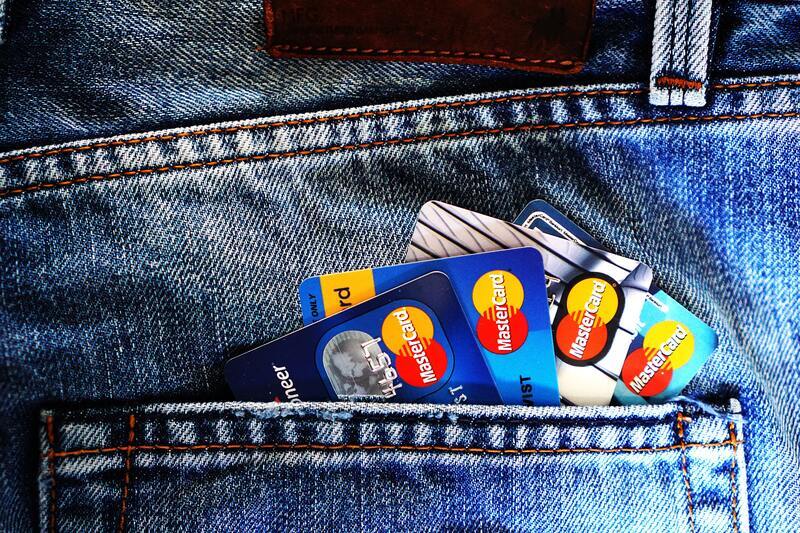Banks in St. Vincent and the Grenadines play a crucial role in the financial landscape of this beautiful Caribbean country.
From basic savings accounts to complex investments and loans, the banks operating in St. Vincent and the Grenadines offer a wide range of financial services to meet the diverse needs of their customers.
This blog explores the major banks operating in the country, their services and products, the requirements for opening an account, and much more.
If you are looking to invest as an expat or high-net-worth individual, which is what I specialize in, you can email me (advice@adamfayed.com) or WhatsApp (+44-7393-450-837).
It remains our view that the banks aren’t the best, or safest, place to keep your money. The banking crisis in 2023 is another reminder of that.
Nevertheless, this article will look at some of the better banks in St. Vincent and the Grenadines.
What are the major banks that operate in St. Vincent and the Grenadines?
St. Vincent and the Grenadines has a number of banks that offer a range of financial services, including personal and business banking, loans, mortgages, investments, and more.
Some of the major banks in St. Vincent and the Grenadines are:
Bank of St. Vincent and the Grenadines
This is the national bank of St. Vincent and the Grenadines, and it offers a range of personal and business banking services, including savings accounts, loans, mortgages, and credit cards.
CIBC FirstCaribbean International Bank
This is a major regional bank that operates in St. Vincent and the Grenadines, and it offers a range of personal and business banking services, including savings accounts, loans, mortgages, and credit cards.
Republic Bank (EC) Limited
This is another major regional bank that operates in St. Vincent and the Grenadines. Similar to others, it also offers a range of personal and business banking services, including savings accounts, loans, mortgages, and credit cards.
Eastern Caribbean Amalgamated Bank (ECAB)
This is a regional bank that operates in St. Vincent and the Grenadines and other Eastern Caribbean countries. It also offers a range of personal and business banking services, including savings accounts, loans, mortgages, and credit cards.
Caribbean Development Bank (CDB)
This is a regional financial institution that provides financing and development assistance to member countries, including St. Vincent and the Grenadines. While it doesn’t offer retail banking services, it may provide financing and support to local banks and other financial institutions.
Other financial institutions and credit unions also operate in St. Vincent and the Grenadines, offering a range of financial services to customers.

What financial services do banks in St. Vincent and the Grenadines offer?
Banks in St. Vincent and the Grenadines offer a wide range of financial services to individuals, businesses, and other organizations.
Some of the most common financial services offered by banks in St. Vincent and the Grenadines include:
Savings accounts
Banks in St. Vincent and the Grenadines offer savings accounts with varying interest rates, minimum balances, and other features. These accounts are ideal for individuals who want to save money for emergencies or future expenses.
Checking accounts
Checking accounts are another common financial service offered by banks in St. Vincent and the Grenadines. These accounts typically come with a debit card, check-writing privileges, and other features that make it easy for individuals to manage their day-to-day expenses.
Loans
Banks in St. Vincent and the Grenadines offer various types of loans, including personal loans, business loans, and home mortgages. These loans come with varying interest rates, repayment terms, and eligibility requirements, depending on the type of loan and the bank offering it.
Credit cards
Many banks in St. Vincent and the Grenadines also offer credit cards to qualified customers. These cards come with varying credit limits, interest rates, and rewards programs, depending on the bank and the type of card.
Investments
Some banks in St. Vincent and the Grenadines also offer investment services, such as stocks, bonds, and mutual funds. These services are designed to help customers grow their wealth over time.
What are the requirements to open a bank account in St. Vincent and the Grenadines?
The requirements to open a bank account in St. Vincent and the Grenadines may vary slightly from bank to bank, but there are some general requirements that are commonly asked for by most banks.
Identification
Customers are required to provide a valid form of identification, such as a passport, driver’s license, or national ID card.
Proof of address
Customers are also required to provide proof of their address, such as a utility bill or a bank statement.
Minimum deposit
Most banks in St. Vincent and the Grenadines require customers to make a minimum deposit when opening a new account. The amount may vary depending on the type of account being opened.
Tax identification number
Customers may be required to provide their tax identification number, depending on the bank and the type of account being opened.
Reference letters
Some banks in St. Vincent and the Grenadines may require customers to provide reference letters from other financial institutions or businesses.
How do I choose the right bank for my needs in St. Vincent and the Grenadines?
Choosing the right bank for your needs in St. Vincent and the Grenadines can depend on a variety of factors.
Look for a bank that offers the financial services you need, such as savings accounts, checking accounts, loans, and credit cards. Some banks may also offer additional services such as investment accounts and insurance products.
Different banks may charge different fees for their services, such as account maintenance fees, ATM fees, and transaction fees. Compare the fees charged by different banks and choose one that offers affordable fees and charges.
If you’re looking to save or invest your money, consider the interest rates offered by different banks. Look for a bank that offers competitive interest rates on its savings and investment products.
Also, consider the location and accessibility of the bank’s branches and ATMs. Look for a bank that has convenient locations and hours of operation.
Consider the bank’s reputation and customer service track record. Look for a bank with a good reputation for reliability, security, and customer service.
Check the bank’s online and mobile banking services, including its website and mobile app. Look for a bank that offers easy-to-use online and mobile banking services to make banking more convenient for you.
Overall, choosing the right bank in St. Vincent and the Grenadines requires careful consideration of your financial goals, preferences, and needs.

How can I protect my money and assets when banking in St. Vincent and the Grenadines?
Protecting your money and assets when banking in St. Vincent and the Grenadines requires taking certain precautions and being aware of potential risks.
Choose a bank with a good reputation and a history of reliability, security, and customer service.
Use strong passwords for your online banking accounts, and don’t share them with anyone.
You must also check your account balances and transactions regularly to ensure that there are no unauthorized transactions.
Be wary of emails or phone calls that request personal information or ask you to click on links. Scammers may use these tactics to try to steal your information.
Don’t share your personal information, such as your social security number or passport information, unless it’s absolutely necessary.
It is also advisable to use encryption and other security measures, such as two-factor authentication, to protect your online banking transactions.
You can also diversify your investments across different types of assets and accounts to reduce the risk of losing all your money in one investment.
Finally, consider using a safe deposit box to store important documents and valuables.
What are the fees associated with banking in St. Vincent and the Grenadines?
The fees associated with banking in St. Vincent and the Grenadines may vary depending on the bank and the type of account you have.
Some banks may charge a monthly or annual fee for maintaining your account.
Banks may also charge fees for transactions such as ATM withdrawals, wire transfers, and electronic transfers.
If you overdraw your account, you may be charged an overdraft fee. If you make transactions in a foreign currency, the bank may charge a foreign exchange fee.
If you lose your debit or credit card and need a replacement, the bank may charge a fee for issuing a new card.
Some banks may also charge a fee if you close your account before a certain period of time has passed.
It’s important to review the fee schedule of your chosen bank carefully and understand the fees associated with your account to avoid any surprises.
Some banks may also offer fee waivers or reduced fees for certain types of accounts or customers, so it may be worth asking about these options.
Additionally, you may want to consider using online banking services to avoid or minimize some fees, such as transaction fees for paper checks or in-person transactions.
What is the process for sending and receiving international wire transfers through a bank in St. Vincent and the Grenadines?
The process for sending and receiving international wire transfers through a bank in St. Vincent and the Grenadines is generally straightforward.
To send an international wire transfer, you’ll need to provide the recipient’s name, account number, and the name and address of their bank.
You’ll also need to provide your own account information to authorize the transfer and to cover any fees associated with the transfer.
Then, specify the amount and currency you want to send. There will likely be a fee associated with the transfer, and you’ll need to pay this fee to complete the transfer.
Finally, wait for the transfer to be completed: It may take several days for the transfer to be completed, depending on the banks involved and any intermediaries.
Meanwhile, in receiving an international wire transfer, you’ll also need to provide the sender with your name, account number, and bank information.
Wait for the transfer to be completed. It may take several days for the transfer to be completed, depending on the banks involved and any intermediaries.
Once the transfer is completed, you should verify that the funds have been received in your account.
It’s important to note that there may be fees associated with both sending and receiving international wire transfers. The fees may vary depending on the banks involved and the currency used.
You should check with your bank to understand the fees associated with international wire transfers and ensure you have all the necessary information to complete the transfer successfully.

How do banks in St. Vincent and the Grenadines support local businesses and the economy?
Banks in St. Vincent and the Grenadines offer loans to businesses to help them finance their operations, expand their businesses, and create jobs.
These loans can be used for various purposes, including purchasing equipment, financing working capital, and funding new projects.
They also provide financial advice and expertise to help businesses make informed decisions and manage their finances effectively.
This advice can be particularly valuable for small and medium-sized enterprises (SMEs), which may not have in-house financial expertise.
Banks in St. Vincent and the Grenadines often support local initiatives and projects that contribute to the development of the local economy.
For example, they may sponsor events or donate funds to local charities and organizations.
The banks also play a role in promoting financial literacy among individuals and businesses.
They may offer educational programs, workshops, and seminars to help people better understand financial concepts and make informed financial decisions.
By helping businesses grow and creating jobs, banks contribute to the development of the local economy and the well-being of the community.
Conclusion
Banks in St. Vincent and the Grenadines provide a range of financial services and play an important role in supporting the local economy.
Whether you’re a resident or a visitor, knowing how to choose the right bank, the fees associated with banking, and how to protect your assets can help you make the most of your financial experience in St. Vincent and the Grenadines.
As with any financial institution, it’s important to research and ask questions to ensure that you choose a bank that meets your needs.
Understanding the requirements for opening an account, the types of accounts available, and the fees associated with banking can help you make an informed decision.
Overall, by understanding the financial landscape in St. Vincent and the Grenadines, you can make the most of your banking experience and take advantage of the services and expertise offered by local banks.
Whether you’re looking to grow your business, manage your finances, or simply make everyday transactions, banks in St. Vincent and the Grenadines are there to support you.
Pained by financial indecision? Want to invest with Adam?

Adam is an internationally recognised author on financial matters with over 830million answer views on Quora, a widely sold book on Amazon, and a contributor on Forbes.



